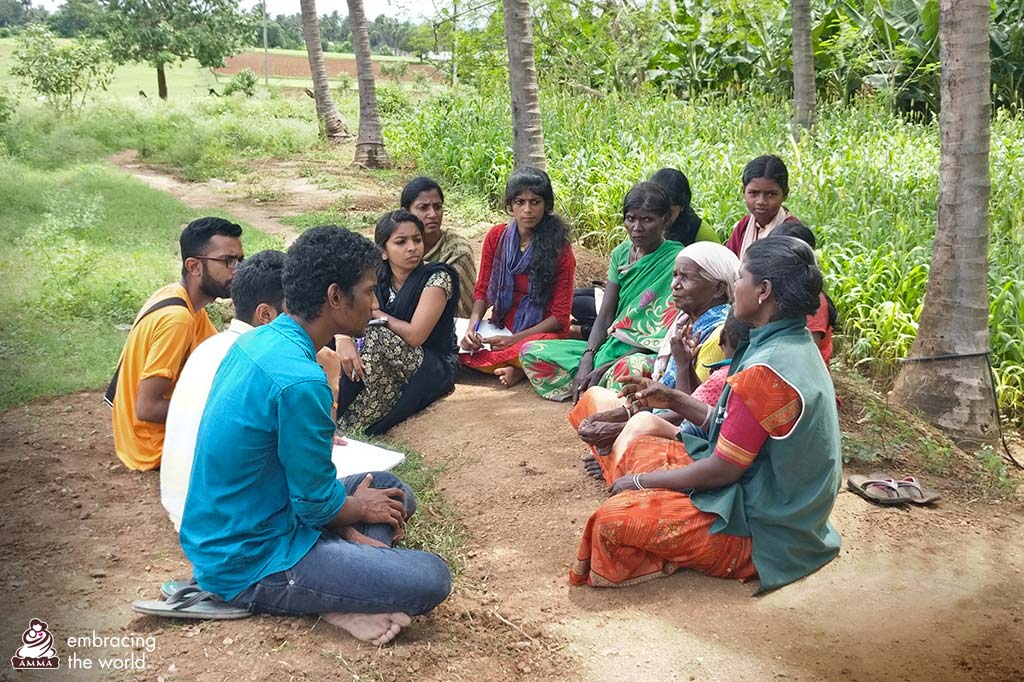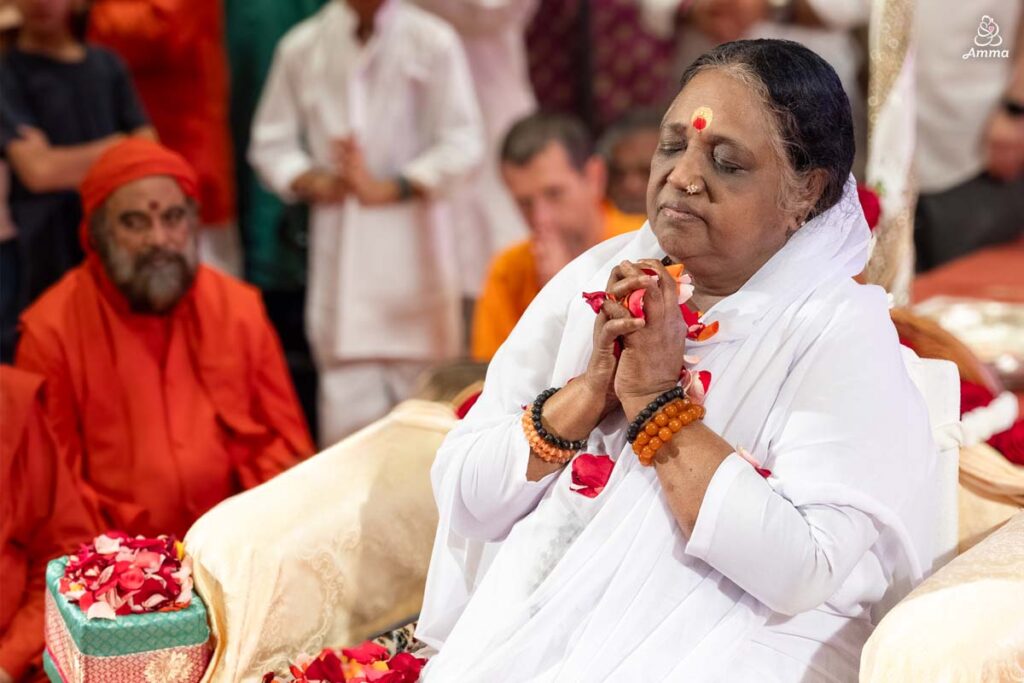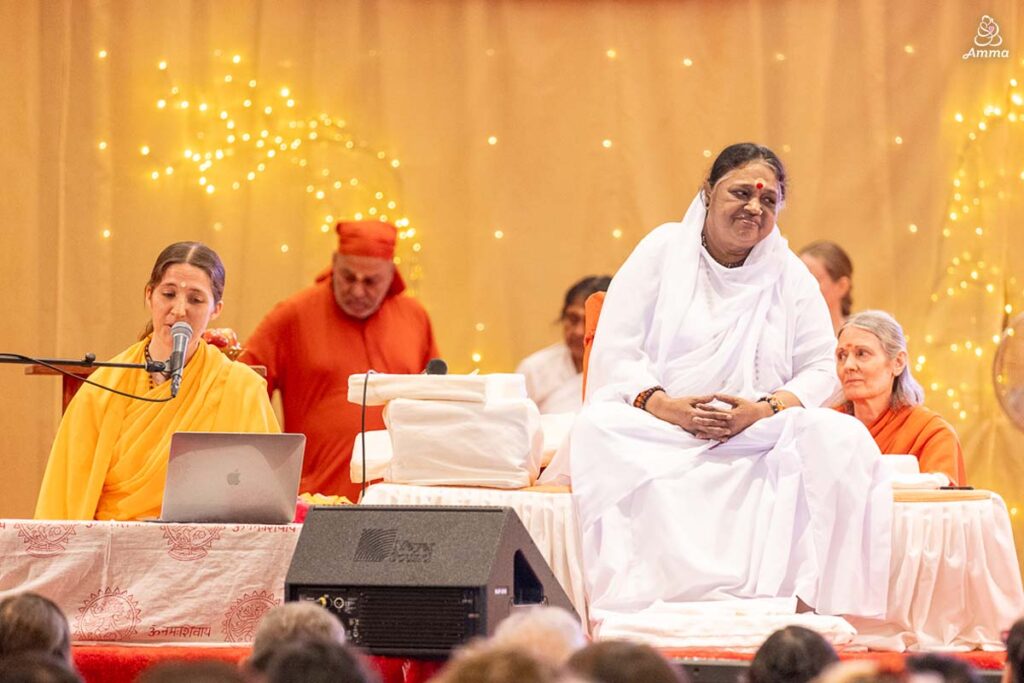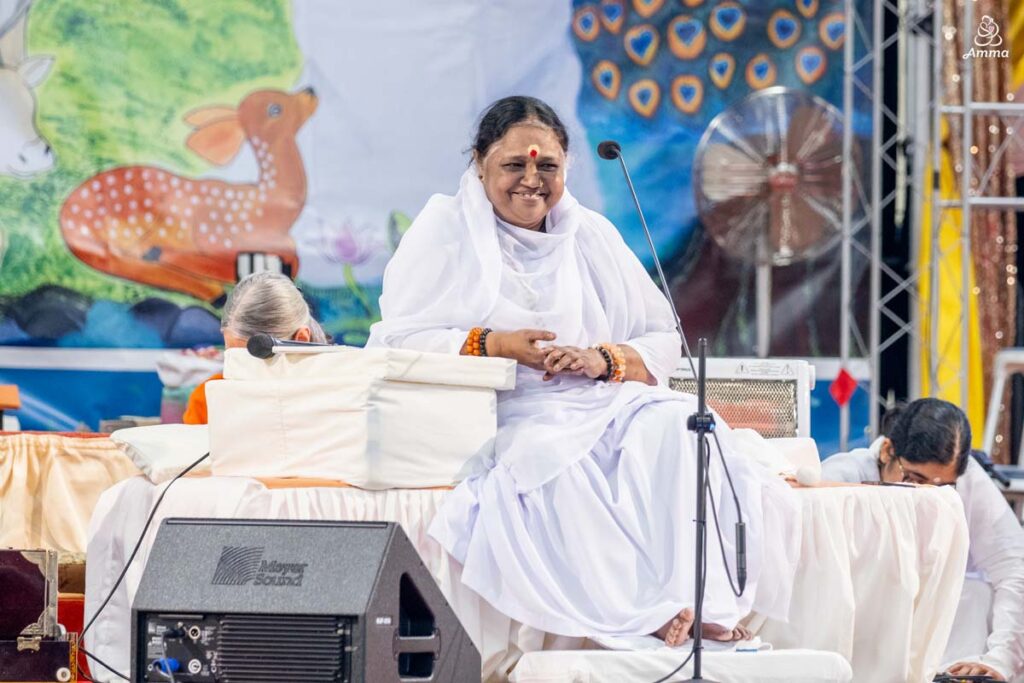Forty-three Master of Social Work students with Amrita Vishwa Vidyapeetham decided to spend a month in 14 different villages across the country. The goal of the fieldwork was to practically learn what life is like in rural India, a place where 80% of India’s 270,000,000 people in poverty live.
“All in all, this placement has been a huge period of professional and personal growth,” said second-year student Nabeela. “My confidence has increased through my fieldwork, and I was presented with valuable opportunities to step outside of my comfort zone and to try new things.”
Amma always encourages Amrita students to spend time in rural India. She says that doing so helps them to understand the local needs, become more sensitive to cultural differences and build the empathetic compassionate connections that the world desperately needs.
“I feel so privileged to have had this opportunity to be part of something great.”
Nabeela
Under Amrita’s UNESCO Chair in Gender Equality & Women’s Empowerment, the Master of Social Work students took this opportunity to use their classroom learning in the context of real-life experiences. They participated in interventions that focused on health, sanitation, legal awareness and life skills.
“Village life is very rustic and can be challenging in many ways,” says Amrita’s senior lecturer Vivek Subromaniam. “These students come from affluent lifestyles and spending time in villages takes adjustment and a strong will. But our students participated fully and with enthusiasm and enjoyed every minute.”
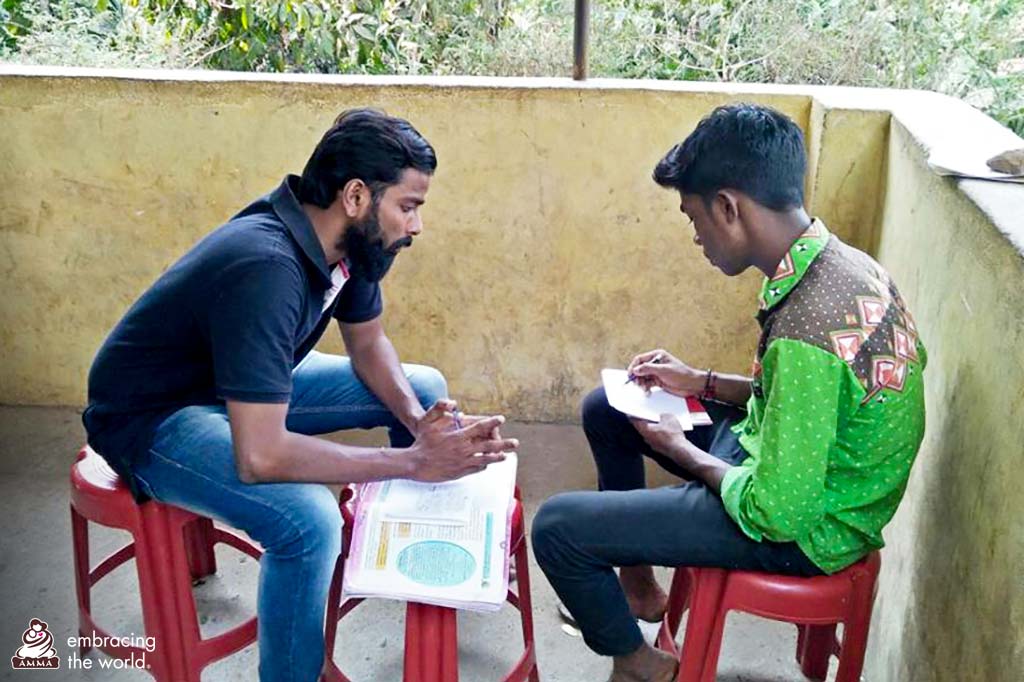
The first step was in September 2017 when the students took part in sanitation drives in eight villages from the south to the north. As part of this, they assisted women in rural toilet building. Learning construction empowers the women to have an alternative means to income earning and informs about the need for sanitation.
India is the country with the highest number of people practising open defecation – around 525 million. High levels of open defecation are linked to high child mortality, poor nutrition, poverty, and large disparities between rich and poor.
In terms of community mobilization, the students helped organize Open Defecation Free Pledges & Awareness Rallies, set up meetings to liaise with Government and external agencies and helped conduct Community Clean Up Drives outlined by the Swacchh Bharat Abhiyan (Clean India Initiative).
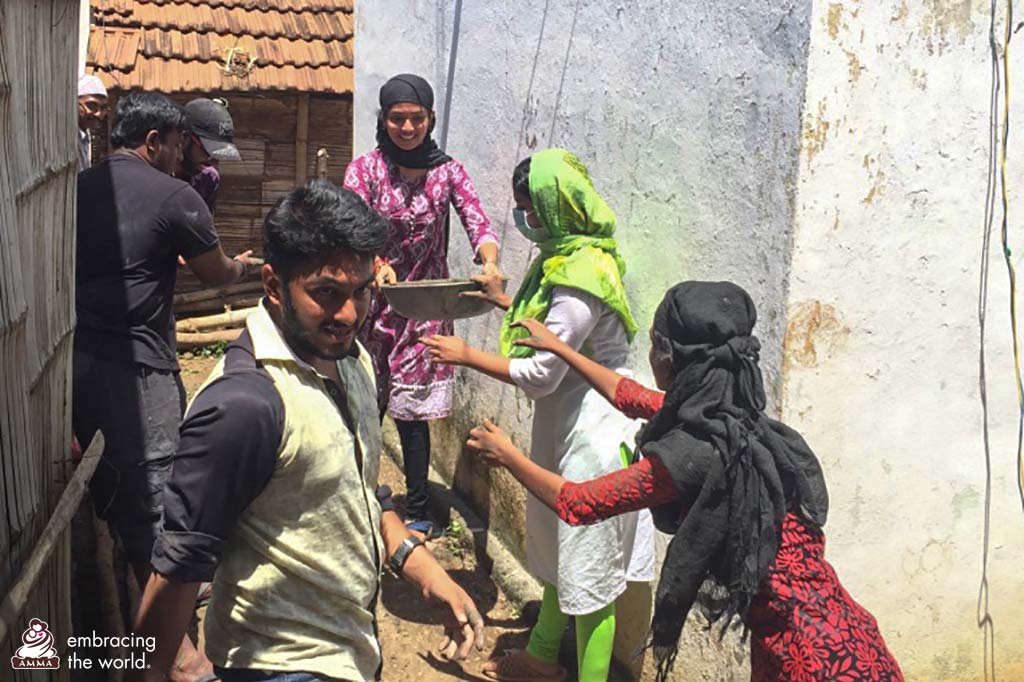
Another part of the students’ work was to conduct interviews with villagers as part of the Women Vulnerability Mapping project currently underway at Amrita’s Center of Gender Equality & Women’s Empowerment. They also surveyed risk assessments with community organizers, Self-Help-Group members, health workers and other change agents.
Next, in March 2018, the students spent about 20 days in another 8 villages across India. They conducted meetings with district officials aimed at giving people greater accessibility to legal opportunities.
They also held awareness sessions to give the villagers information about vital needs for the wellness of their lives. This included topics such as health awareness tuition camps for children and discussions about alcoholism and domestic violence for adults, especially women.
Health awareness sessions about water were also crucial, from drinking water to proper water storage. The larger goal was to empower small focus groups to take up overall village water monitoring.
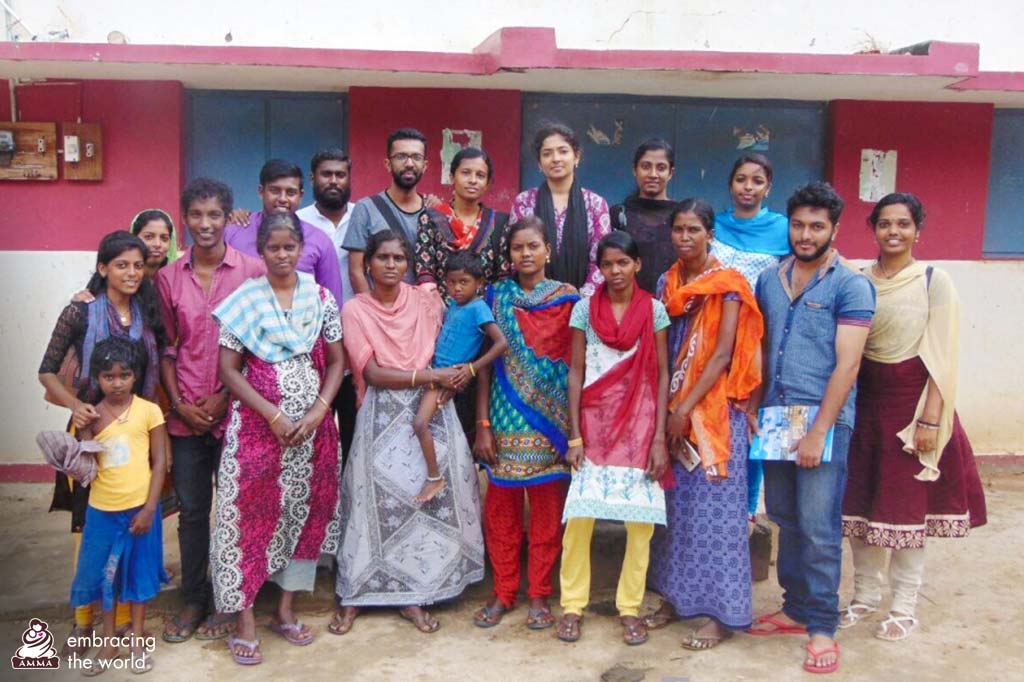
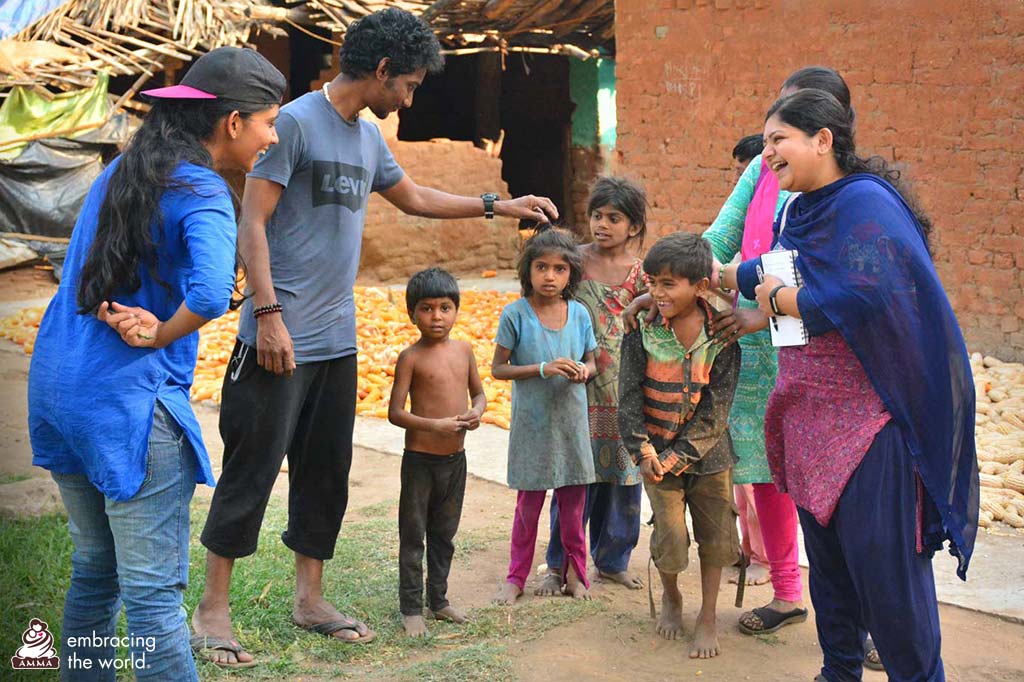
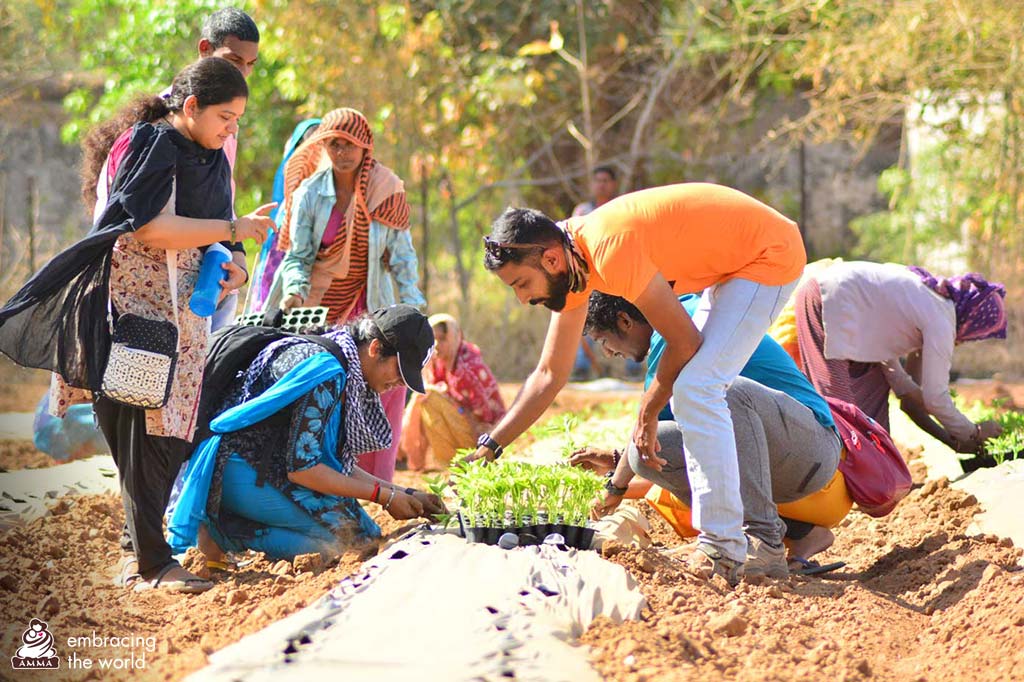
In the end, the students built deep and lasting connections with the villagers that provided a rich learning experience.
PhD researcher Reshma Ramesh, who served as a student chaperone in Madhya Pradesh, commented, “Field education is the most important component of the social work experience. Amma’s programs in the context of Indian villages offer unparalleled opportunities to learn both spiritual and academic lessons together. Such experiences cannot be found elsewhere – even in top universities around the world.”


